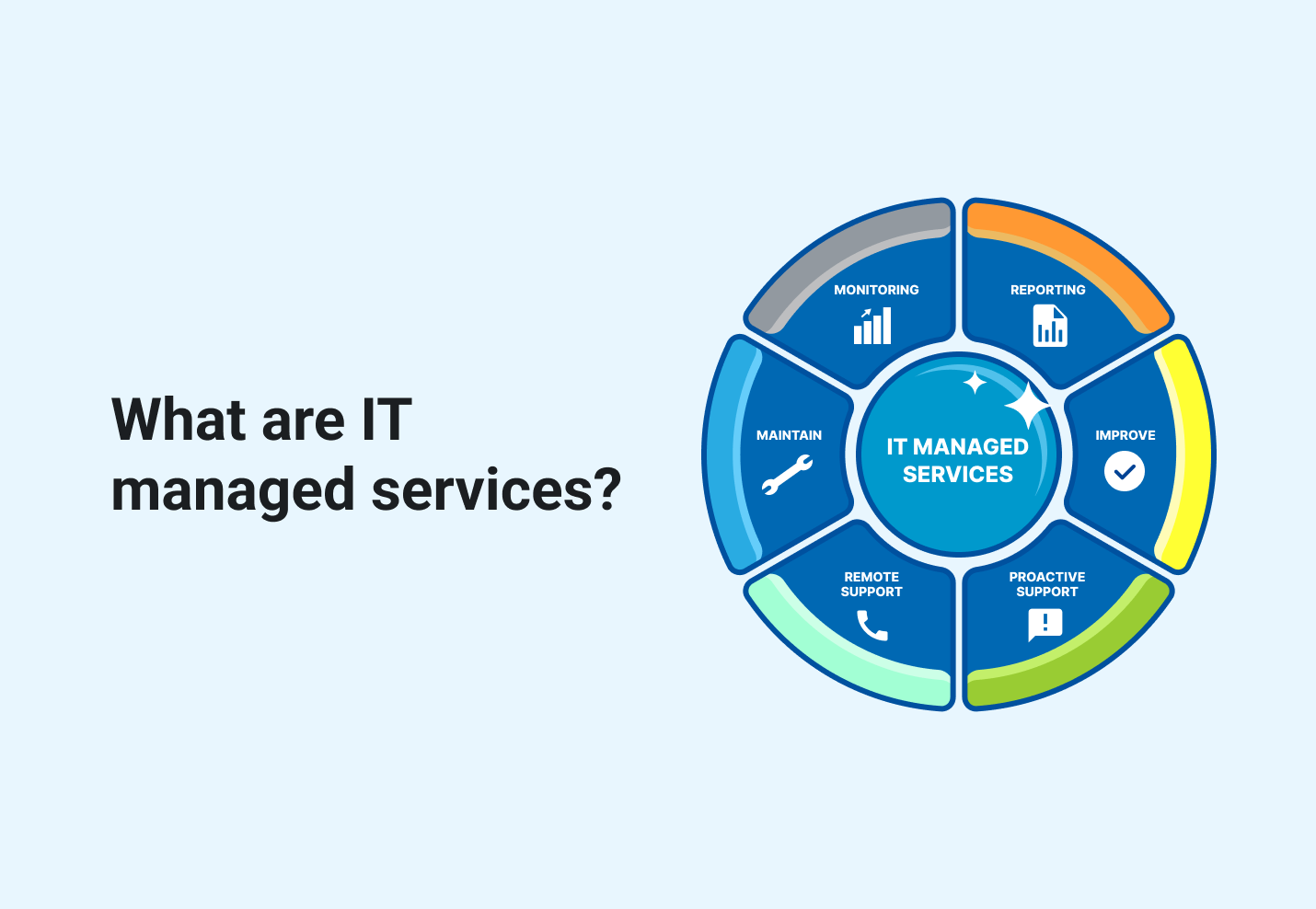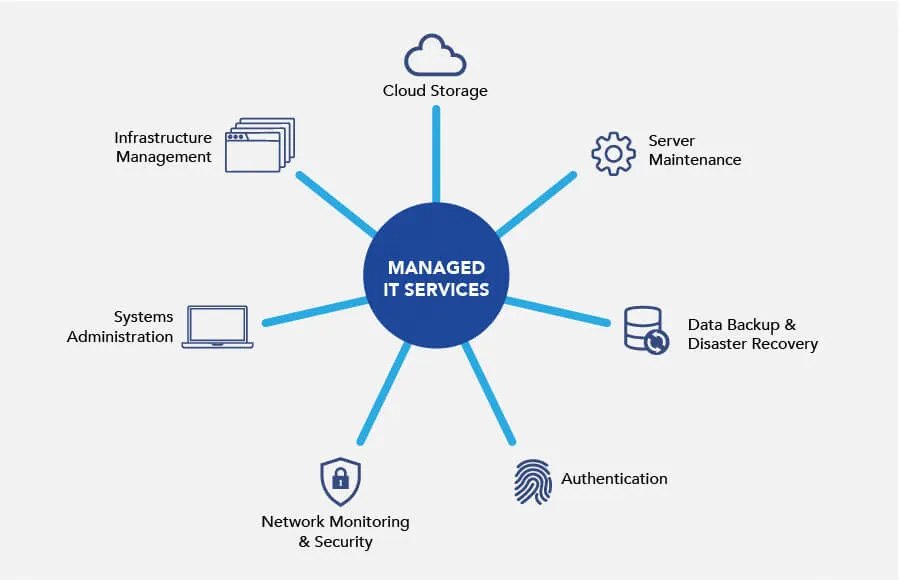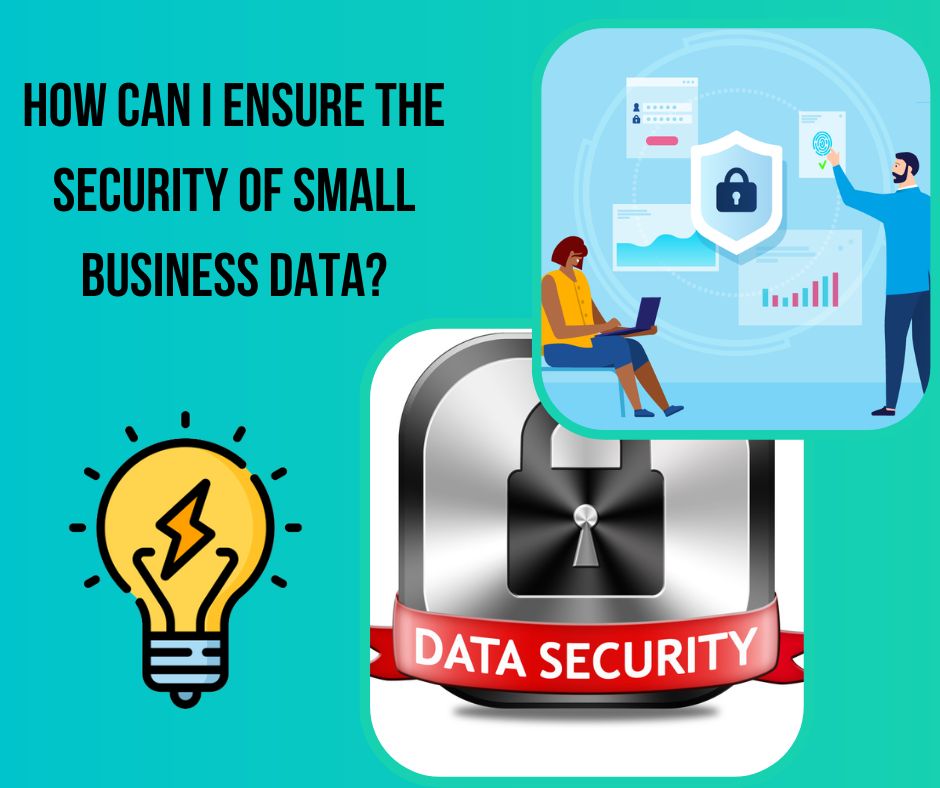How to choose the right IT support provider for small business: Choosing the right IT support provider for your small business can be a crucial decision, as IT plays an increasingly important role in today’s business environment. Here are some factors to consider when choosing an IT support provider for your small business:

Experience and expertise:
Look for an IT support provider with a track record of success in providing IT support to businesses similar to yours. Check their credentials, references, and customer reviews to assess their level of experience and expertise.
Here are some points to consider when evaluating an IT support provider’s experience and expertise:

Industry experience:
Look for an IT support provider that has experience working with businesses in your industry. They may have a better understanding of the specific technology needs and challenges faced by your business and be able to provide more tailored solutions.
Certifications and partnerships:
Check if the IT support provider has certifications and partnerships with technology vendors, such as Microsoft, Cisco, or Amazon Web Services (AWS). This can indicate that the provider has the necessary skills and knowledge to support these technologies.

Case studies and references:
Ask the IT support provider for case studies and references from previous clients. This can help you evaluate the provider’s track record and the quality of their work.
Team expertise:
Check the expertise of the IT support provider’s team. Do they have specialists in areas such as cybersecurity, cloud computing, or network infrastructure? A diverse team with a range of skills can provide more comprehensive IT support. We can discuss more regarding How to choose the right IT support provider for small business.
Read More
| What IT services are essential for a small business? |
| How much does small business IT support typically cost? |
Training and development:
Ask the IT support provider about their training and development programs for their staff. This can indicate that they are committed to staying up-to-date with the latest technologies and industry best practices.
By considering these factors, you can get a better sense of the IT support provider’s experience and expertise and whether they are a good fit for your business.

Range of services:
Evaluate the range of services offered by the IT support provider, such as hardware and software support, network administration, security management, cloud computing, and backup and recovery solutions. Make sure they offer the services you need and that their service level agreement (SLA) meets your business needs.
Certainly, here are some additional points to consider when evaluating the range of services offered by an IT support provider:

Hardware and software support:
Look for an IT support provider that can support a wide range of hardware and software products, including desktops, laptops, servers, printers, and operating systems. They should also be able to provide maintenance, upgrades, and troubleshooting services. We can discuss more regarding How to choose the right IT support provider for small business.

Network administration:
Check if the IT support provider can manage your network infrastructure, including routers, switches, firewalls, and wireless access points. They should also be able to monitor network performance, detect and resolve issues, and ensure network security. We can discuss more regarding How to choose the right IT support provider for small business.
Security management:
Look for an IT support provider that can help you assess and manage your IT security risks. They should be able to provide services such as vulnerability assessments, threat monitoring, intrusion detection, and data encryption.
Cloud computing:
Check if the IT support provider can support your cloud computing needs, such as setting up and managing cloud infrastructure, migrating to the cloud, and providing ongoing cloud support and maintenance. We can discuss more regarding How to choose the right IT support provider for small business.
Backup and recovery solutions:
Look for an IT support provider that can help you implement and manage backup and recovery solutions for your data and applications. They should be able to ensure that your data is protected and can be restored quickly in case of a disaster.
IT consulting:
Check if the IT support provider can provide IT consulting services to help you plan and implement technology solutions that align with your business goals. They should be able to provide guidance on technology strategy, project management, and IT budgeting.
By considering these factors, you can get a better sense of the IT support provider’s range of services and whether they can provide the support you need to keep your business running smoothly. We can discuss all regarding How to choose the right IT support provider for small business.
Availability and responsiveness:
Ensure that the IT support provider offers 24/7 support and has a prompt response time for resolving issues. Check their communication channels and escalation procedures to understand how they manage support requests and communicate with customers.

some additional points to consider when evaluating an IT support provider’s availability and responsiveness:
Service level agreement (SLA):
Check the IT support provider’s SLA to understand their response time, availability, and escalation procedures. Ensure that their SLA meets your business needs and that they have a process in place to respond to urgent issues promptly. We can discuss more regarding How to choose the right IT support provider for small business.
Communication channels:
Look for an IT support provider that offers multiple communication channels, such as phone, email, and chat. Ensure that they have a dedicated support team that is available to respond to your requests promptly.
Proactive monitoring:
Check if the IT support provider can provide proactive monitoring of your IT systems and infrastructure to detect and resolve issues before they cause downtime. This can help minimize the impact of IT issues on your business operations.
Onsite support:
Evaluate the IT support provider’s onsite support capabilities. If your business requires onsite support, ensure that the provider can provide this service and has technicians in your area.
After-hours support:
Ensure that the IT support provider offers after-hours support and has a process in place to respond to urgent issues outside of regular business hours.
By considering these factors, you can get a better sense of the IT support provider’s availability and responsiveness and whether they can provide the level of support you need to keep your business running smoothly. We can see all regarding How to choose the right IT support provider for small business.

Cost and pricing:
Compare the pricing and cost of IT support services offered by different providers. Look for a provider that offers a flexible pricing model and provides transparent pricing information upfront. We can discuss few more regarding How to choose the right IT support provider for small business.
here are some additional points to consider when evaluating an IT support provider’s cost and pricing:
Pricing model:
Check the IT support provider’s pricing model to understand how they charge for their services. Some providers charge a flat monthly fee, while others charge on an hourly or per-incident basis. Ensure that the pricing model is transparent and easy to understand.
Contract terms:
Check the contract terms to understand the length of the agreement, the notice period required to terminate the agreement, and any penalties for early termination. Ensure that the contract terms are flexible and meet your business needs.
Scalability:
Evaluate the IT support provider’s ability to scale their services as your business grows. Ensure that they can accommodate your changing IT support needs without significantly increasing costs.
Hidden costs:
Check for any hidden costs, such as setup fees, equipment costs, or travel expenses. Ensure that the provider is transparent about all costs and that there are no unexpected charges.
Value-added services:
Look for IT support providers that offer value-added services, such as IT consulting or training, as part of their support packages. These services can help you maximize the value of your IT investment and improve your overall IT performance.
By considering these factors, you can get a better sense of the IT support provider’s cost and pricing and whether their services align with your budget and business needs. It’s also important to compare the pricing and services of multiple IT support providers to ensure that you are getting the best value for your investment.

Compatibility and integration:
Check the compatibility of the IT support provider’s solutions with your existing IT infrastructure and applications. Ensure that they can integrate with your systems and software without causing disruption or compatibility issues.
here are some additional points to consider when evaluating an IT support provider’s compatibility and integration capabilities:
Compatibility with existing systems:
Check if the IT support provider’s solutions and services are compatible with your existing IT systems and infrastructure. Ensure that they have experience working with similar systems and can provide seamless integration.
Vendor relationships:
Evaluate the IT support provider’s relationships with technology vendors. Ensure that they have partnerships with major vendors and can provide support for a wide range of hardware and software products.
Interoperability:
Check if the IT support provider’s solutions and services can interoperate with your existing IT systems and infrastructure. Ensure that they can provide integration support for different technologies and platforms.
Customization:
Evaluate the IT support provider’s ability to customize their solutions and services to meet your specific business needs. Ensure that they can provide tailored solutions that align with your business goals and objectives.
Upgrades and maintenance:
Check if the IT support provider can provide upgrades and maintenance for your existing IT systems and infrastructure. Ensure that they have a process in place to keep your systems up-to-date and can provide ongoing maintenance to ensure optimal performance.
By considering these factors, you can get a better sense of the IT support provider’s compatibility and integration capabilities and whether they can provide the support you need to ensure that your IT systems work seamlessly together.
Customer service and support:
Look for an IT support provider that offers excellent customer service and support. Check their customer service record, response time, and communication channels to assess their level of customer support.
some additional points to consider when evaluating an IT support provider’s customer service and support:
Communication:
Evaluate the IT support provider’s communication style and responsiveness. Ensure that they have a dedicated support team that can respond to your requests promptly and communicates clearly and effectively.
Customer service culture:
Check if the IT support provider has a customer-focused culture and values customer satisfaction. Ensure that they prioritize your business needs and provide personalized support.
Technical expertise:
Evaluate the IT support provider’s technical expertise and the qualifications of their support team. Ensure that they have experienced technicians who can troubleshoot and resolve complex IT issues. We can discuss more regarding How to choose the right IT support provider for small business.
Service desk:
Check if the IT support provider has a service desk that provides a single point of contact for all IT support requests. Ensure that the service desk is available 24/7 and can provide prompt support for urgent issues.
Customer feedback:
Check the IT support provider’s customer feedback and reviews. Ensure that they have a track record of providing high-quality customer service and support.
Training and documentation: Check if the IT support provider provides training and documentation to help your staff use IT systems more effectively. Ensure that they can provide user-friendly documentation and training that aligns with your business needs.
By considering these factors, you can get a better sense of the IT support provider’s customer service and support and whether they can provide the level of support you need to keep your business running smoothly. It’s also important to ask for references from existing customers to validate the quality of the IT support provider’s customer service and support.
By considering these factors, you can choose the right IT support provider for your small business that meets your business needs and ensures reliable and efficient IT support services. We can now all regarding How to choose the right IT support provider for small business.
IT Support Guys right away if your small business or home needs
At InSystemTech, we pay attention to you and your technology. We can help you stay in touch with the outside world, get a new computer or computer parts, or even improve your IT skills. We try to make it easier for you to meet all of your technology needs in one place by giving you top-notch tech support, protecting your devices, and having a gadgets shop. We can discuss more regarding How to choose the right IT support provider for small business.
Website: https://tinyurl.com/ycyh6xnd
Address: Address: 1201 West Esplanade Ave Apt. 303,LA, Kenner,United States 70065
CAll: +1 888 506 5226

Conclusions
In conclusion, choosing the right IT support provider for your small business is crucial for ensuring optimal performance and minimizing downtime. When evaluating potential providers, consider factors such as their experience and expertise, range of services, availability and responsiveness, cost and pricing, compatibility and integration, and customer service and support.
By carefully considering these factors, you can identify an IT support provider that aligns with your business needs and can provide the support you need to keep your systems running smoothly. It’s also important to do your research and compare multiple providers to ensure that you are getting the best value for your investment. Ultimately, investing in a reliable IT support provider can help your business stay competitive, efficient, and secure in an increasingly digital world.

